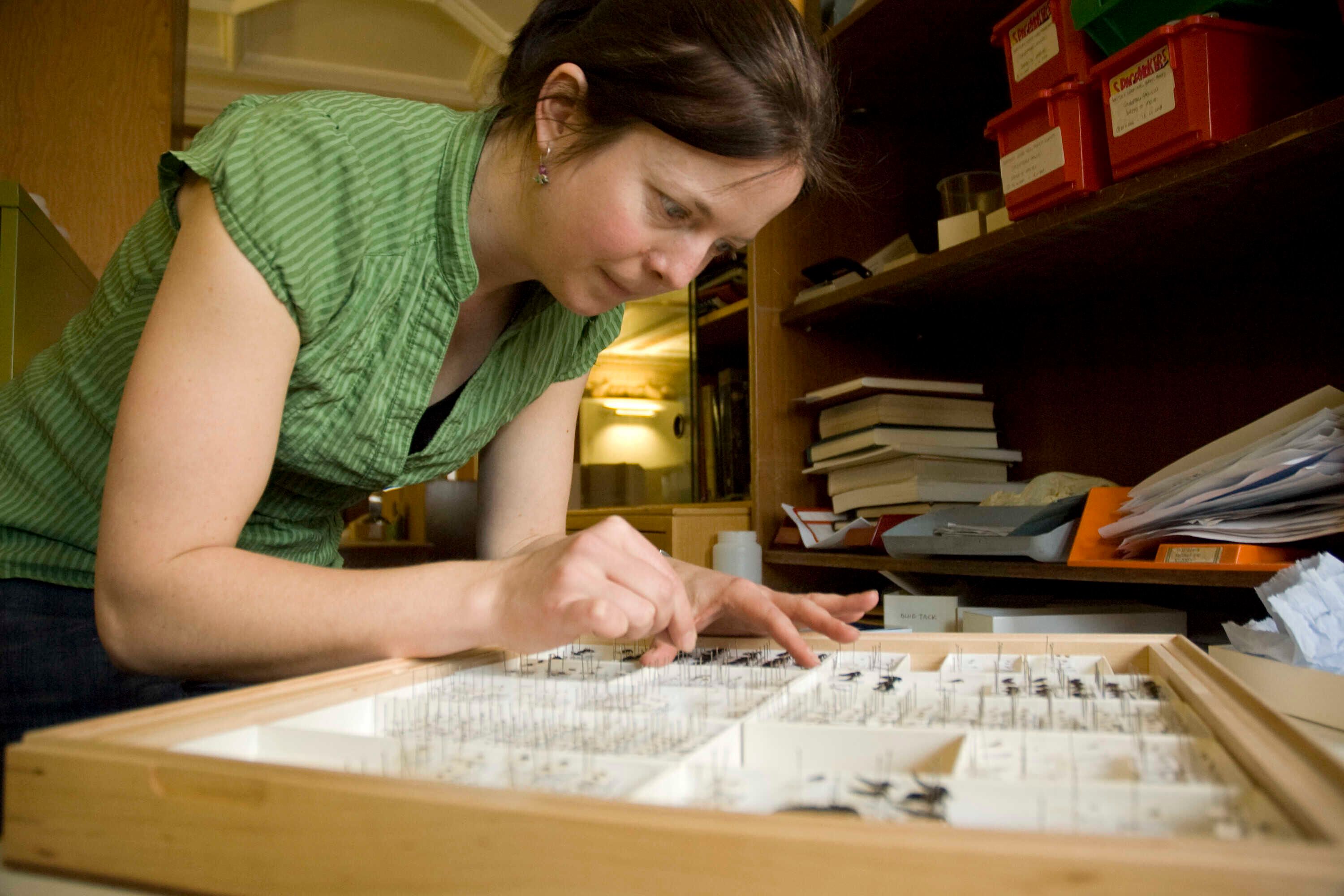
Bioinformatics and Theoretical Systems Biology
Gain the skills to produce effective research in bioinformatics and theoretical systems biology
Gain the skills to produce effective research in bioinformatics and theoretical systems biology
Liaise with leading biologists, mathematicians and computing specialists
Plan and execute an individual research project and become comfortable using modelling software
Course key facts
-
Qualification
-
MRes
-
-
Duration
1 year
-
Start date
September 2025
-
Study mode
Full-time
-
Fees
£15,800 Home
£38,600 Overseas
-
Delivered by
-
Location
-
South Kensington
-
Minimum entry standard
-
2:1 in a biological/biomedical/bioengineering, clinical or physical sciences, computational, or mathematical subject.
Course overview
Build the multidisciplinary skills required to produce effective research in bioinformatics and theoretical systems biology on this Master's course.
Taught by experts in relevant fields, you'll acquire core biological, computational and mathematics expertise through lectures, practical classes and assignments.
This course will help you enhance your research techniques, including in information and data retrieval, study design, and data analysis and statistics.
You'll also liaise with biologists, mathematicians and computing specialists to produce a series of research projects throughout the academic year.
Structure
This page is updated regularly to reflect the latest version of the curriculum. However, this information is subject to change.
Find out more about potential course changes.
Please note: it may not always be possible to take specific combinations of modules due to timetabling conflicts. For confirmation, please check with the relevant department.
You'll complete the following core modules.
Core modules
This module starts with an introduction to molecular and cellular and systems biology, and is particularly aimed at students from a non biological background. It is then followed by in-depth lectures on protein annotation, genome annotation, statistical genetics, systems modelling, and machine learning.
The Mathematics and Computing module starts with an introduction to calculus aimed at those who did not study beyond an elementary level, or require a refresher. The course proceeds with both mathematical modelling, particularly solving differential equations and statistics. The computing language currently taught is Python.
Reinforce your programming skills and experience the creation of code in detail. This is normally undertaken as a group project and runs for about 11 weeks.
Apply your skills obtained from the course in a research environment.
You'll become part of your host laboratory within Imperial, including associated hospitals and Silwood Park.
Many of these projects contribute directly to scientific publications.
The project runs for about 22 weeks.
Teaching and assessment
Teaching and learning methods
-
Lectures
-
Computing labs
-
Practical classes
-
Presentations and seminars
-
Group work
-
Virtual learning environment
-
Lecture recordings
-
Projects and assignments
-
Independent study
Balance of assessment
Key
- Projects
- Examinations and coursework
- 70% Projects
- 30% Examinations and coursework
Assessment methods
-
Coursework
-
Written exams
-
Dissertation
-
Computer and mathematics assignments
-
Individual research project
-
Presentations
-
Group report
-
Oral exam
Entry requirements
We consider all applicants on an individual basis, welcoming students from all over the world.
How to apply
Apply online
You can submit one application form per year of entry. You can choose up to two courses.
Application deadlines – Round 1 closes on Thursday 16 January 2025
We operate a staged admissions process with several application rounds throughout the year.
Apply by 23.59 (UK time) on the closing date of an application round, to ensure you receive a response on your application by the relevant decision date.
Application rounds
Round 1
- Applications open on Friday 27 September 2024
- Applications close on Thursday 16 January 2025
- Decision by Thursday 6 March 2025
Round 2
- Applications open on Friday 17 January 2025
- Applications close on Thursday 27 March 2025
- Decision by Thursday 1 May 2025
Round 3
- Applications open on Friday 28 March 2025
- Applications close on Thursday 15 May 2025
- Decision by Thursday 17 July 2025
Round 4
- Applications open on Friday 16 May 2025
- Applications close on Friday 4 July 2025
- Decision by Thursday 31 July 2025
There is no application fee for MRes courses, Postgraduate Certificates, Postgraduate Diplomas, or courses such as PhDs and EngDs.
If you are applying for a taught Master’s course, you will need to pay an application fee before submitting your application.
The fee applies per application and not per course.
- £80 for all taught Master's applications, excluding those to the Imperial College Business School.
- £100 for all MSc applications to the Imperial College Business School.
- £150 for all MBA applications to the Imperial College Business School.
If you are facing financial hardship and are unable to pay the application fee, we encourage you to apply for our application fee waiver.
Find out more about how to apply for a Master's course, including references and personal statements.
Unless you are from an exempt nationality, you will need an ATAS certificate to obtain your visa and study this course.
Nationals from the following countries are exempt: Switzerland, Australia, Canada, Japan, New Zealand, Singapore, South Korea, USA and EEA members.
Use this information when applying for an ATAS certificate to study this course:
- CAH code: CAH03-01-02
- Descriptor: biology (non-specific)
- Supervisor name: Professor Daniel Davis
Get guidance and support for obtaining an ATAS certificate.
Tuition fees
Home fee
2025 entry
£15,800
You should expect and budget for your fees to increase each year.
Your fee is based on the year you enter the university, not your year of study. This means that if you repeat a year or resume your studies after an interruption, your fees will only increase by the amount linked to inflation.
Find out more about our , including how inflationary increases are applied to your tuition fees in subsequent years of study.
Whether you pay the Home or Overseas fee depends on your fee status. This is assessed based on UK Government legislation and includes things like where you live and your nationality or residency status. Find out .
If you're a UK national, or EU national with settled or pre-settled status under the EU Settlement Scheme, you may be able to apply for a from the UK government, if you meet certain criteria.
For courses starting on or after 1 August 2024, the maximum amount is £12,471. The loan is not means-tested and you can choose whether to put it towards your tuition fees or living costs.
The loan is not means-tested and you can choose whether to put it towards your tuition fees or living costs.
Overseas fee
2025 entry
£38,600
You should expect and budget for your fees to increase each year.
Your fee is based on the year you enter the university, not your year of study. This means that if you repeat a year or resume your studies after an interruption, your fees will only increase by the amount linked to inflation.
Find out more about our tuition fees payment terms, including how inflationary increases are applied to your tuition fees in subsequent years of study.
Whether you pay the Home or Overseas fee depends on your fee status. This is assessed based on UK Government legislation and includes things like where you live and your nationality or residency status. Find out how we assess your fee status.
If you're a UK national, or EU national with settled or pre-settled status under the EU Settlement Scheme, you may be able to apply for a Postgraduate Master’s Loan from the UK government, if you meet certain criteria.
For courses starting on or after 1 August 2024, the maximum amount is £12,471. The loan is not means-tested and you can choose whether to put it towards your tuition fees or living costs.
The loan is not means-tested and you can choose whether to put it towards your tuition fees or living costs.
How will studying at Imperial help my career?
Develop the essential core knowledge and skills for a bioinformatics or systems biology career.
Our graduates often pursue further study in master's programs or doctoral research.
Life sciences graduates are in demand across a wide range of industries.
These include government and industrial research, public health, and careers in business.
Further links
Contact the department
- Email: s.dennison@imperial.ac.uk
Course Director: Professor Michael Sternberg
Course Co-Director: Dr Derek Huntley
Course Administrator: Sally Dennison
Visit the Department of Life Sciences website.

Request info
Find out more about studying at Imperial. Receive updates about life in our community, including event invites and download our latest Study guide.

Events, tasters and talks
Meet us and find out more about studying at Imperial.

Terms and conditions
There are some important pieces of information you should be aware of when applying to Imperial. These include key information about your tuition fees, funding, visas, accommodation and more.
You can find further information about your course, including degree classifications, regulations, progression and awards in the programme specification for your course.
Programme specifications